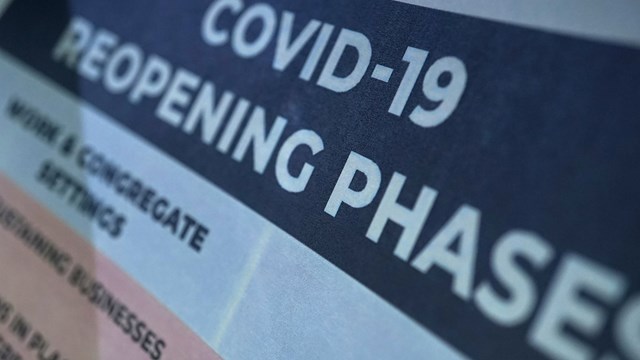In the perennial struggle to control costs while still adequately maintaining a building or HOA’s physical plant, grounds, and other day-to-day business, some boards and managers are opting to hire superintendents, custodians, and other staff on a temporary, as-needed basis, or to partner up with neighboring associations to share one super or groundskeeper between them.
In other words, some of the jobs are being outsourced from full-time staffers to contracted companies. In today’s world, the word ‘outsourced’ is a loaded word, associated with jobs that are outsourced from the United States to foreign countries. When it comes to the tasks surrounding the operation of a co-op or condo however, the concept is a bit different.
A Growing Trend?
“Full-time superintendent positions are now being transformed into part-time porter positions, with the option of handyman services a la carte,” says Rolando Velazco of Clean Habitat in Manhattan, a company that provides an array of support services, including common area cleaning, trash and supply management, exterior grounds maintenance, garden watering, and garage maintenance. “By doing so, properties save on hours not being utilized by the superintendent, and can instead put those funds into necessary focused improvements around the property. In the long run, this transitions to time and money saved, without sacrificing any service goals.”
Task Masters United in Brooklyn provides superintendent services as well, including maintenance, management and repair. CEO Ray Smith lists many benefits of outsourcing, including not having to hire employees, acquire (and pay rent on) office space, or even pay for an employee’s sick days or vacation time.
“However,” Smith continues, “a full-time staff should be considered for residential units with 35-40 units and above. Full-time service will ensure that trash and recycling areas are getting the necessary care and attention needed for sanitary reasons.”
Smith also explains that his firm and many others like it also supply any equipment and tools necessary to do other jobs in client buildings, and that he has a full-time staff who are available 24/7. “If you only have one super and he calls out sick, you don’t have anyone to back him up,” he says, “but if that happens to us, we have a backup.”
Money is of course one of the biggest reasons why any business outsources certain jobs to another company, and Velazco cites having more control over the building’s costs and tasks as another benefit of outsourcing. “For example,” he says, “hiring a handyman for a few hours to replace a light fixture makes more financial sense than employing a full-time super and incorporating handyman costs that might not be utilized on a daily basis.”
Smith does concede that there are a few drawbacks to bringing in an outside contracting company and ordering a la carte. “We are contracted to do certain things, but if there are other responsibilities, those do cost extra,” he says, and adds that some boards only contract for one or two services, such as lawn maintenance or snow removal. “Many times the buildings have supers who are licensed plumbers and electricians, but we don’t do in-wall plumbing and we’re not electricians,” so there are limits to what a building or association can get done on-demand.
On the other hand, Jeffrey Schwartz of Schwartz Sladkus Reich Greenberg Atlas LLP in New York says that the final decision for a building to outsource can come down to – surprise! – the money. “The company is originally paying an employee to do a job, but if they are now outsourcing it, it could actually increase the costs,” he says.
For example, one building might be paying John Smith $50,000 to do the job, but the Jones Janitorial Company can be hired to do the same job at $60,000 a year. In this fictional case, the building’s costs have increased $10,000 per year. Why bother? If the board is getting a company that does more than what John does, or they also are saving money by not having to pay John’s benefit plan or other perks, the board might make a financially sound decision. Point is, all details have to be thoroughly evaluated before deciding if outsourcing is a decision that makes financial and temporal sense.
Another potential drawback could be security issues. Let’s say that in a smaller building, Mr. Doorman accepts packages, signs in guests and, like the bartenders on Cheers, knows everyone by name. Mr. Doorman’s salary is pretty nice, but in today’s world where the costs of capital improvement projects are going up and the economic struggles of the residents is visible, the board is looking to save some cash for a rainy day. The roof has to be fixed and, to be honest, Mr. Doorman doesn’t really accept that many packages or sign in that many guests anyway. It might be tempting to hire an outside firm to do Mr. Doorman’s job on a part-time basis, but according to Scwartz, this could represent a security concern. “If you no longer have a door manned by someone, it’s a potential for unauthorized access,” he says.
And there’s also the benefit and comfort of having a familiar face and name welcome you home, wish you a good day, and be the one you call on for service requests, package receipts, and countless other little things whenever they pop up.
Decisions, Decisions
While a building’s bylaws may state that it’s the board that is allowed to make changes to the staff and outsource jobs, the residents should still be surveyed. “It’s a pretty big decision and, if you talk to most boards, they would involve or get feedback from the residents,” says Schwartz. “If the board doesn’t communicate what they are doing to the residents and just goes ahead and does it, there can be a lot of pushback, even though the board can legally do this on its own.”
In addition to the aforementioned security issue, Schwartz brings up another example that might concern residents about outsourcing. “If residents are used to having a full-time super or porter on staff, they may have a negative reaction if the building goes to a part-time person,” he says. “Let’s say a pipe bursts and the water can’t be stopped. The resident has to call the person who is off-site, and it takes them longer to get there. In the meantime, the water is damaging the unit and possibly others as well. Outsourcing is being done as a means of saving money, but you can’t cut back on the level of service. The level of cost-savings has to be significant so that it makes a big difference.”
Check ‘Em Out
When it comes to quality service, you want to hire competent, trustworthy employees. When a job is being outsourced, the same standard applies - which means doing some due diligence on the contracted company. This is important because employees from the outsourced company will have access to residents’ units, as well as access to certain personal information, packages and building systems.
“The company brought in from the outside hopefully has a history or reputation that the agent is familiar with,” says Schwartz. “The board can get recommendations or referrals, do a Google search or a check litigation [records] to see if the company has been in any lawsuits.”
The company should also have all the right paperwork before beginning any projects or work on the building. “Before any company is allowed in the building they have to prove they are insured and name the condo or managing agent as an additional insured,” says Schwartz. “In most cases it doesn’t sound like they will be handling money, but some companies are bonded in case of theft issues. These bonds will protect the residents should something happen when the company is in a resident’s unit.”
“We also provide a certificate of insurance, but we do our own background checks,” says Smith. “That’s for us, and we don’t provide that to anyone unless it’s needed or asked for. We also have the necessary licenses necessary to show anyone, such as the sprinkler standpipe certification.”
Once a building services company is hired, the chain of command within the community’s administrators might shift or change. “Ultimately, the building is the employer, whether they hire a maintenance company directly, or if the management company is outsourcing,” says Velazco. “The building is the client, and they will communicate their needs directly.”
Velazco says that his staff reports to the property manager. “If there is no property manager, we work directly with the board and usually we work with both,” he says. “If there are neither, we work with the owner.”
Hiring a company to do a job doesn’t mean being stuck with that company either. If it’s not working out, they can get ‘fired’ just like a regular employee. “We give our clients a one-year contract, and then an option of 30 days if they want to cancel the contract,” says Velazco.
Outsourcing jobs or creating part-time positions out of full time ones doesn’t have to be a permanent situation. Boards can hire contracting companies to do some of the staff jobs and see if it works for them. They can also do it to save money temporarily and then bring someone in full-time at a later date. It will also give the board or management company the ability to take their time and hire someone while the jobs are still getting done. In the final analysis, considering whether to hire an outside company or keep the jobs in-house is really an individual decision and depend on the building’s needs and budget.
Lisa Iannucci is a freelance writer, editor and author, and a frequent contributor to The Cooperator.







Leave a Comment